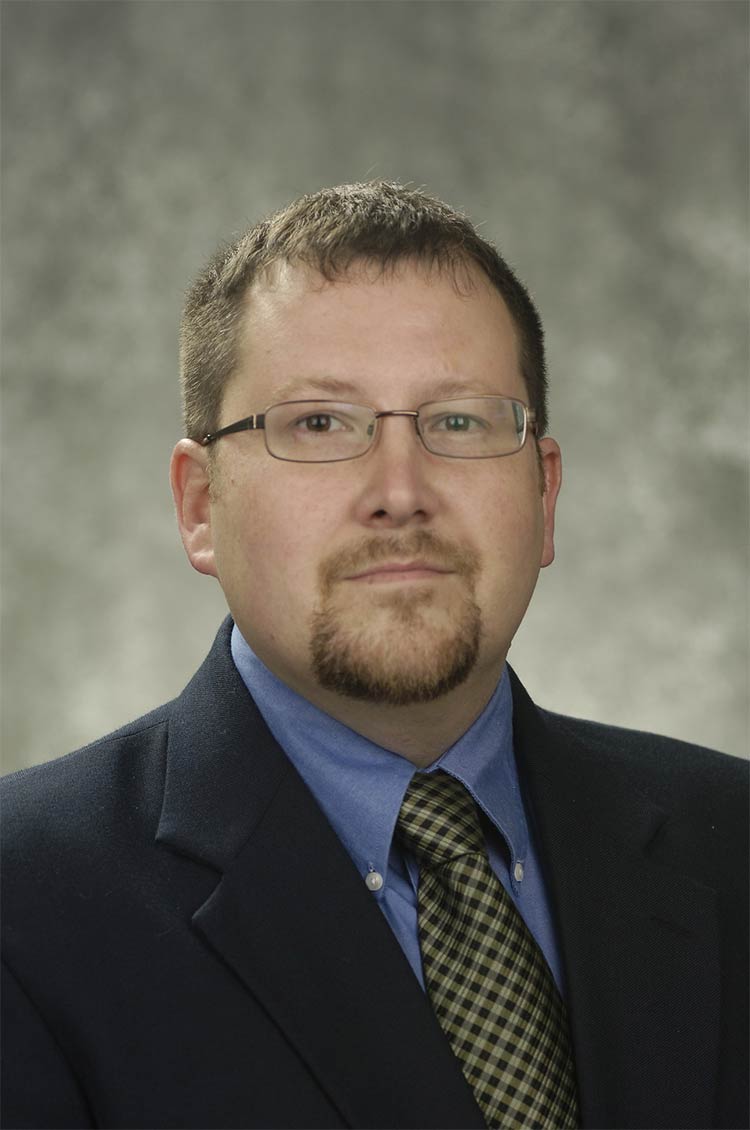
Nate McElroy
Get to know a little about Nate McElroy, a professor in IUP’s Madia Department of Chemistry, Biochemistry, Physics, and Engineering.
What is it about the chemistry field that initially drew you in—and ultimately keeps you interested?
In my youth, I sometimes amused myself by mixing household goods together to see if anything would happen, and that got me wondering about why certain things occurred—why did kerosene clean paint from a brush while water didn’t? How did Pepsi dissolve a nail? How did Tylenol make a headache go away? With no explanation, it all kind of seemed like magic.
Once I started taking chemistry courses and learned what’s going on at the molecular level and why certain reactions occurred—and I got to run reactions in a lab—I was hooked.
The mentoring I got from professors, the research projects I worked on, and the elective courses I took really opened my eyes as to how chemistry impacts every facet of our daily lives. There’s always something new to learn in chemistry, and keeping current can be a challenge as new methods are developed and technology improves.
Your specialty is listed as analytical chemistry. What is that, in layman’s terms, and what is its role in the larger chemistry field?
Analytical chemistry is the “science of obtaining, processing, and communicating information about the composition and structure of matter.”
Practically, what this means is that analytical chemists use lab methods, data analysis, and instruments to examine both what something is composed of and how much of a substance is present. That can mean determining how safe your drinking water is, monitoring air quality, determining the purity of or contaminants in food, drug, and other consumer products, and helping other chemists to understand the new substances they create (i.e., drugs, semiconductors, nanomaterials, etc.).
What advice would you give students about how to succeed in college?
Everyone approaches their learning in different ways, so what works for one student may not be best for another. But in general, putting in the time and effort usually works. There are no shortcuts or hacks if you really want to be good in your field, particularly in the STEM fields.
Really understanding and succeeding in chemistry, for example, requires good math skills and some basic understanding of physics, in addition to good written and oral communication skills. Don’t be afraid to make mistakes, go to class/lab, communicate with your profs, and practice, practice, practice. Time management is also good to learn now if you haven’t. If possible, treat school like a job—focus on the work during the day, then give yourself some downtime in the evening to relax and socialize.